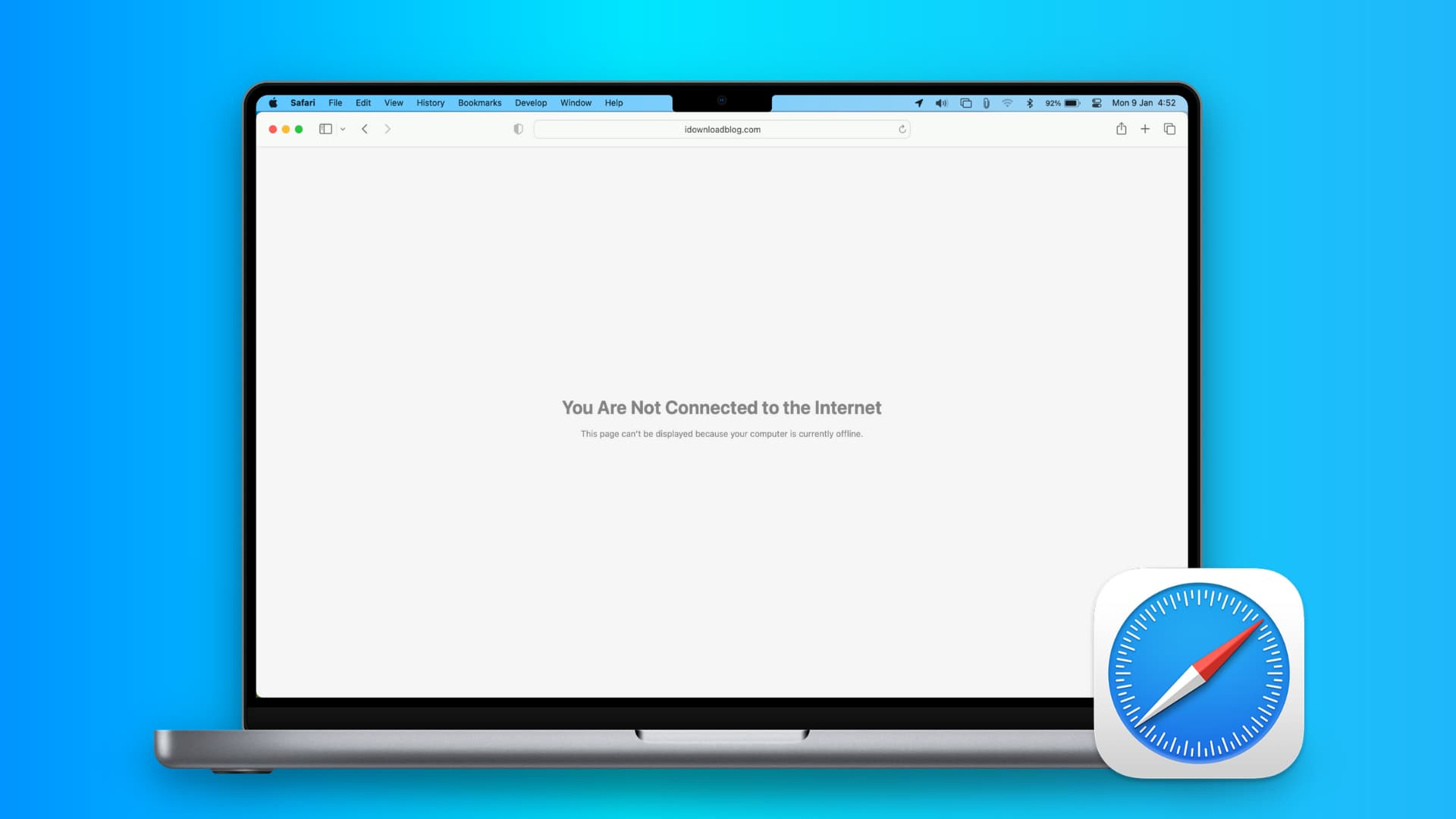Introduction
When it comes to browsing the internet, you may have come across the term “browser plugins” at some point. These small software programs play a crucial role in enhancing your browsing experience and adding extra functionality to your web browser. Whether you’re using Google Chrome, Mozilla Firefox, or any other popular browser, plugins are instrumental in extending the capabilities of your browser beyond its default features.
So, what exactly is a browser plugin? In simple terms, a plugin is a piece of software that can be added to your web browser to expand its functionality. It acts as an add-on, supplementing the native capabilities of the browser and enabling you to perform additional tasks or access specific content on the internet.
Browser plugins operate by integrating with your browser’s existing framework, enabling them to modify, alter, or enhance certain aspects of your browsing experience. They can introduce new features, such as ad blockers, password managers, or media players, or improve existing functionalities, like spell checkers or translation tools.
Popular browsers like Chrome and Firefox support a wide range of plugins, allowing users to personalize their browsing experience according to their preferences and needs. These plugins are generally developed by third-party developers or the browser companies themselves, and they can be easily installed and managed from official plugin repositories or websites.
Why should you consider using browser plugins? The answer lies in the numerous benefits they offer. Plugins can enhance your productivity, improve your online security, and make browsing more convenient and enjoyable. However, it’s important to be aware of the potential risks and concerns associated with browser plugins, as they can introduce vulnerabilities or conflicts with other software on your computer.
In this article, we’ll delve deeper into the world of browser plugins. We’ll explore how they work, provide examples of popular browser plugins, discuss the benefits of using them, and address the risks and concerns associated with their usage. We’ll also provide a guide on how to install and manage browser plugins, ensuring you can make the most out of these handy tools while keeping your browsing experience safe and seamless.
What is a Browser Plugin?
A browser plugin, also known as a browser extension or add-on, is a software component that enhances the functionality of a web browser. It is designed to integrate seamlessly with the browser, providing additional features or modifying existing ones to improve the user experience.
Browser plugins are typically developed by third-party developers or the browser companies themselves. They are designed to extend the capabilities of the browser beyond its native functionalities, allowing users to customize their browsing experience according to their needs and preferences.
Plugins can add various functionalities to a web browser, such as blocking advertisements, managing passwords, providing language translation, capturing screenshots, or even changing the appearance of websites. They can be categorized into different types based on their purpose, including productivity tools, security enhancements, entertainment add-ons, and social media integrations.
Plugins work by interacting with the browser’s application programming interface (API), which allows them to access and modify certain parts of the browser’s functionality. This enables them to seamlessly integrate with the browser’s user interface and interact with web pages to provide the desired functionality.
Most popular browsers, including Google Chrome, Mozilla Firefox, Microsoft Edge, and Safari, provide official marketplaces or repositories where users can find and install plugins. These marketplaces ensure that the plugins available for download have been vetted for security and are compatible with the respective browsers.
To install a plugin, users simply need to search for it in the browser’s official marketplace, click on the install button, and follow the prompts. Once installed, the plugin appears as a small icon or button next to the browser’s address bar, providing quick and easy access to its functions.
Overall, browser plugins play a vital role in enhancing the browsing experience by adding extra functionality and customization options. They allow users to tailor their browser to fit their specific needs and preferences, making web browsing more efficient, secure, and enjoyable.
However, it’s worth noting that not all plugins are created equal. While there are many reputable and useful plugins available, there are also malicious or poorly designed ones that can negatively impact the browsing experience or compromise the security of the user’s system. Therefore, it’s important to be mindful of the plugins you choose to install and ensure they come from trusted sources.
In the next sections, we’ll explore how browser plugins work, provide examples of popular plugins, discuss the benefits they offer, and address the risks and concerns associated with their usage.
How Do Browser Plugins Work?
Browser plugins work by integrating with the existing framework of a web browser, allowing them to modify or enhance specific aspects of the browsing experience. They extend the browser’s functionality by adding new features, altering existing functionalities, or providing a more convenient way to interact with web content.
When a browser plugin is installed, it becomes part of the browser’s infrastructure, leveraging the browser’s application programming interface (API) to interact with web pages and perform specialized tasks. The API provides a set of functions and methods that allow plugins to access various browser features and manipulate web content.
Plugins can modify or enhance different aspects of the browsing experience, depending on their purpose. For example, an ad blocker plugin manipulates web pages to hide or remove advertisements, while a password manager plugin adds a functionality to securely store and autofill passwords. Each plugin interacts with the browser and web pages in its own unique way to provide its intended functionality.
When you visit a webpage, the browser loads the page’s HTML, CSS, and JavaScript code. Browser plugins can also inject additional code into the webpage to perform their tasks. This can include modifying the appearance of the webpage, adding new buttons or functionalities, or intercepting and manipulating data exchanged between the browser and the website.
Plugins can also communicate with servers on the internet to retrieve data or perform background tasks. For example, a weather plugin might fetch the latest weather information from a remote server and display it directly in the browser. Similarly, a language translation plugin may send the text on a web page to an online translation service and display the translated version in real-time.
Browser plugins typically come packaged in a specific file format, such as a “.crx” file for Google Chrome or an “.xpi” file for Mozilla Firefox. When you download a plugin file, the browser uses its built-in installation mechanism to extract and install the plugin. Once installed, the plugin integrates itself into the browser’s user interface, often appearing as a small icon or button near the address bar.
Managing plugins is relatively straightforward. Most browsers have a dedicated settings or extensions menu where you can view, enable, disable, or uninstall plugins. This allows users to have control over which plugins are active and customize their browsing experience according to their preferences.
However, it’s important to be cautious when installing and using browser plugins. Not all plugins are trustworthy, and some may introduce security vulnerabilities or conflicts with other software on your computer. It’s recommended to only install plugins from reputable sources, such as the official plugin repositories provided by the browser companies.
In the next sections, we’ll explore examples of popular browser plugins, highlight the benefits they offer, and discuss the risks and concerns associated with their usage.
Examples of Popular Browser Plugins
Browser plugins come in a wide variety, catering to different needs and preferences of users. Here are some popular examples of browser plugins that offer additional functionality and enhance the browsing experience:
- Ad Blockers: Ad blocker plugins, such as Adblock Plus and uBlock Origin, help remove intrusive and unwanted advertisements from web pages. They improve the browsing experience by reducing distractions and decreasing page load times.
- Password Managers: Password manager plugins, like LastPass and 1Password, securely store and autofill your usernames and passwords for various websites. This eliminates the need to remember multiple login credentials and enhances online security.
- Grammar and Spell Checkers: Plugins such as Grammarly and LanguageTool help improve writing by providing grammar and spell checking capabilities. They highlight errors in real-time and offer suggestions for corrections while you type.
- Screenshot Tools: Screenshot plugins, such as Lightshot and FireShot, allow you to capture and annotate screenshots directly in the browser. They offer various editing tools, making it easy to highlight or add annotations to the captured image.
- Video Downloaders: Video downloader plugins, like Video DownloadHelper and SaveFrom.net, enable you to download videos from popular platforms like YouTube, Vimeo, and Facebook. They provide a convenient way to save videos for offline viewing.
- Language Translation Tools: Language translation plugins, such as Google Translate and Bing Translator, help you understand content written in different languages. They can automatically translate web pages or provide a translation on-demand for specific text selections.
- Privacy and Security Enhancements: Plugins like HTTPS Everywhere and Privacy Badger enhance online privacy and security by encrypting website connections or blocking tracking scripts and cookies.
Please note that these are just a few examples of the wide range of browser plugins available. There are countless other plugins designed to cater to specific needs, whether it’s enhancing productivity, improving accessibility, or integrating with popular online services and social media platforms.
Before installing any plugin, it’s important to review its ratings, user reviews, and the reputation of the developer. This helps ensure that the plugin is legitimate and won’t compromise your browsing experience or your computer’s security.
In the following sections, we’ll explore the benefits of using browser plugins and also discuss the risks and concerns associated with their usage.
Benefits of Using Browser Plugins
Browser plugins offer a range of benefits that enhance the browsing experience and provide added functionality to web browsers. Here are some advantages of using browser plugins:
- Customization and Personalization: Plugins allow you to customize your browser according to your preferences. Whether it’s changing the appearance of websites, adding new features, or manipulating content, plugins provide a personalized browsing experience tailored to your needs.
- Enhanced Productivity: Many plugins are designed to improve productivity by offering tools and shortcuts that streamline tasks. For example, plugins that enable tab management, note-taking, or task management can help you stay organized and work more efficiently.
- Improved Security and Privacy: Plugins can enhance online security and privacy by blocking intrusive ads, preventing tracking scripts, or enabling secure browsing. Password manager plugins can also help protect your login credentials and ensure you’re using strong and unique passwords.
- Convenience and Efficiency: Browser plugins can make tasks more convenient and efficient. For example, download manager plugins offer faster and more reliable downloads, while form autofill plugins save you time by automatically filling in commonly used information.
- Access to Specialized Content: Some plugins provide access to specialized content that would otherwise require separate applications or services. For instance, plugins for news or sports websites offer real-time updates and personalized content directly in your browser.
- Entertainment and Media Streaming: Plugins like media players or video downloaders enhance your media streaming experience. They enable you to watch videos, play music, or download your favorite media files directly from the browser.
These are just a few examples of the benefits that browser plugins offer. The wide range of available plugins ensures that there’s something for everyone, transforming your browser into a powerful tool that can be customized to suit your specific needs.
However, it’s important to note that while plugins provide various advantages, they also come with some considerations and potential risks. Let’s explore these in the next section.
Risks and Concerns with Browser Plugins
While browser plugins offer a range of benefits, it’s crucial to be aware of the potential risks and concerns associated with their usage. Here are some considerations to keep in mind:
- Security Vulnerabilities: Plugins can introduce security vulnerabilities to your browsing experience. Poorly designed or malicious plugins may have vulnerabilities that hackers can exploit to gain access to your personal information or infect your computer with malware. It’s essential to only install plugins from trusted sources and keep them updated to minimize these risks.
- Compatibility Issues: Sometimes, plugins may not work well with certain websites or other plugins, leading to compatibility issues. This can cause web pages to load incorrectly, or in some cases, even crash the browser. It’s important to regularly update your plugins and ensure they are compatible with the browser version you are using.
- Performance Impact: Some plugins can consume significant system resources and slow down your browser’s performance. This can result in slower page loading times, increased memory usage, or overall sluggishness. It’s advisable to evaluate the performance impact of a plugin before installing it and disable or remove any unnecessary plugins to optimize your browsing experience.
- Privacy Concerns: Certain plugins may collect and track your browsing data, potentially compromising your privacy. Always read the privacy policy of a plugin before installing it to ensure your data is being handled responsibly. Additionally, consider using plugins that offer privacy-enhancing features, such as blocking tracking scripts or encrypting website connections.
- Lack of Support and Updates: Plugins developed by less reputable or inexperienced developers may lack adequate support or regular updates. This can lead to compatibility issues with new browser versions or leave you vulnerable to security threats that are not promptly addressed. Prioritize plugins from trusted sources with a good track record of providing timely updates and support.
- Dependencies on Third-Party Services: Some plugins rely on external services or APIs to provide their functionality. If these services cease to exist or undergo significant changes, it may affect the usability or availability of the plugin. Consider plugins that have a robust and independent functionality to minimize reliance on third-party resources.
It’s important to exercise caution and be proactive about managing your plugins to mitigate these risks. Regularly review and update your plugins, remove any unnecessary ones, and keep your browser and operating system up to date to ensure a secure and optimal browsing experience.
In the next section, we’ll discuss how to install and manage browser plugins, providing useful tips and guidelines to make the most out of these valuable tools.
How to Install and Manage Browser Plugins
Installing and managing browser plugins is a straightforward process that allows you to customize your browsing experience and add new functionalities. Here’s a general guide on how to install and manage browser plugins:
Installation:
1. Identify the Plugin: Determine the specific plugin you want to install. You can browse official plugin marketplaces or trusted websites to find plugins that cater to your needs.
2. Verify the Source: Ensure that the plugin is from a reputable source to minimize security risks. Stick to official plugin marketplaces or websites recommended by trusted sources.
3. Click Install: Once you’ve found the plugin you want, click on the “Install” button or link provided. The browser will initiate the installation process.
4. Follow the Prompts: Follow any on-screen prompts or instructions that may appear during the installation. These may include granting necessary permissions or confirming the installation.
5. Restart if Required: In some cases, the browser may require a restart after installing certain plugins. Follow the browser’s prompts to complete the installation process.
Managing Plugins:
1. Access Plugin Settings: Most web browsers have a dedicated menu or settings section specifically for managing plugins. Locate this section in your browser’s settings menu.
2. View Installed Plugins: In the plugin management section, you should find a list of all installed plugins. Take a moment to review the plugins you have installed and their current status.
3. Update Plugins: Keeping plugins up to date is vital for security and compatibility. Check for available updates for each plugin and install them as recommended.
4. Enable or Disable Plugins: Depending on your needs and preferences, you can enable or disable plugins. Disabling a plugin can help improve performance or troubleshoot compatibility issues.
5. Remove Unnecessary Plugins: Over time, you may accumulate plugins that are no longer useful or necessary. Consider removing any plugins that you don’t actively use to declutter your browser and improve efficiency.
Remember to regularly revisit your plugin settings and ensure that all installed plugins are still useful and trustworthy. Stay vigilant by keeping an eye on plugin reviews, ratings, and any security alerts or updates from the plugin developers or browser company.
By managing your plugins effectively, you can maintain a secure and optimized browsing experience without unnecessary overhead or potential vulnerabilities.
In the next section, we’ll conclude our discussion on browser plugins and summarize the key points discussed throughout the article.
Conclusion
Browser plugins are valuable additions to any web browser, offering enhanced functionality, customization options, and improved browsing experiences. They allow users to tailor their browsers according to their individual needs, making tasks more efficient, secure, and enjoyable.
In this article, we explored what browser plugins are and how they work. We discussed examples of popular plugins, highlighting their diverse functionalities and how they can benefit users. Additionally, we addressed the risks and concerns associated with plugin usage, emphasizing the importance of choosing reputable sources and managing plugins effectively to maintain security and performance.
When installing plugins, it’s essential to verify the source and ensure compatibility with your browser and operating system. Regularly updating plugins and removing unnecessary ones helps mitigate security risks, maintain performance, and minimize any potential conflicts.
By understanding the benefits and risks of browser plugins, users can make informed choices about which plugins to install and how to manage them effectively. Remember to prioritize security, privacy, and performance when selecting and using plugins, and always review the reputation and credibility of the plugin developer.
Use browser plugins wisely to unlock a world of possibilities and enhance your online experiences. Whether it’s increasing productivity, improving security, or accessing specialized content, plugins provide a valuable toolbox to personalize and optimize your browsing activities.
Now that you have a better understanding of browser plugins, take advantage of the wide array of options available and explore the plugin marketplaces provided by your favorite browser. Find the plugins that suit your needs and preferences, and embark on a journey of transforming your browsing experience to new heights.

























